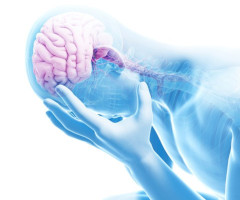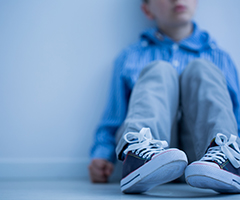Depression: Alternative Approaches

Depression is one of the most serious and costly healthcare issues facing us today, affecting more than 20 million adults in the United States. While medication is often the first avenue of therapy used for those who are depressed, new evidence shows that alternative approaches of treatment may provide effective ways to reduce the symptoms of depression. By employing these alternative approaches, mild to moderate symptoms can be reduced.
Some of the types of alternative approaches that might benefit a person with mild to moderate depression include the following:
- Acupuncture
- Sunlight
- Dietary modifications
- Meditation
- Pet therapy
- Physical activity
- Yoga
- Sleep
Acupuncture: Acupuncture is beneficial for depression because of its ability to regulate energy flow throughout the body, and its ability to stimulate the production of endorphins, which are essential for mental health and well-being. Endorphins are “feel good” chemicals released in the brain. People with mild to moderate depression may experience positive changes within 8 to 12 treatments over 4 to 6 weeks, but the duration and frequency of treatment can vary.
Sunlight: Regular sunlight exposure for 30 to 40 minutes a day is an effective therapy for mild and moderate depression and helps to regulate an individual’s circadian rhythms, those natural body rhythms that govern sleep, energy, and hormone levels. When sunlight enters your eyes, it stimulates the parts of your retina that then cue your brain to produce serotonin. Serotonin appears to play a role in regulating mood, emotions, appetite, and digestion, and helps you feel calm and focused. Decreased sun exposure has been associated with a drop in serotonin levels, which can lead to depression. The best-known benefit of sunlight is its ability to boost the body’s vitamin D levels. Individuals who suffer from depression often experience a deficiency of vitamin D.
Dietary modifications: Practicing good nutrition is an important factor in reducing depression. It is important for the brain to receive balanced levels of serotonin, especially fatty acids, and glucose. While there is no “depression diet,” diets low in refined sugar and caffeine and rich in vitamins B and D as well as omega-3 fatty acids are associated with lower rates of depression and improved mood.
Omega-3 fatty acids found in fish oil may be helpful in addressing mild depression. Main sources of omega-3 fatty acids include salmon, halibut, and other deep-sea fish as well as flaxseed oil. Beneficial changes in the brain may manifest as improved mood.
Specific vitamin and mineral supplements (such as folate, thiamine, and vitamins B6, B12, E, and C) are an effective adjunctive treatment for depression. Supplementation with vitamin D may be effective for seasonal affective disorder. For treating mild depression, the B vitamins (especially folic acid, vitamin B6, and B12) may be helpful.
Vitamin B12 is abundant in animal products such as fish, meat, poultry, eggs, and milk. Low levels of B12 and other B vitamins have been linked to depression.
Meditation: Meditation can help elevate an individual’s mood and reduce anxiety as well as depressive symptoms. Meditation involves the cultivation of awareness and a focused attention on the present moment. It results in a relaxed state of mind in which individuals are conscious of their experience, including sensations, thoughts, and feelings, breathing, and surroundings, all with an attitude of nonresistance, peace, and acceptance.
Pet therapy: Pet therapy, also known as animal-assisted therapy, is recognized by the National Institute of Mental Health as an effective form of psychotherapy for treating depression and other mood disorders. How does a cat, a dog, or other animal help an individual cope with depression? Pets can help promote a sense of emotional connectedness and overall well-being. Interactions with pets (even if they are not your pets) can reduce anxiety, blood pressure, and heart rate.
Physical activity: Physical activity is an effective, inexpensive treatment for depression and is available to virtually everyone. Physical activity is any activity that works your muscles and requires energy. Some examples include walking, running, swimming, gardening, washing your car, and dancing. Any type of physical activity that gets you moving has been shown to help reduce symptoms of depression. Smaller amounts of physical activity (as little as 10 to 15 minutes at a time) may make a difference.
Yoga: Yoga may be beneficial in treating individuals with both mild and moderate depressed mood. Yoga involves different body poses, breathing techniques, and meditation. Yogic breathing helps balance the parasympathetic and the sympathetic nervous systems. The slow rhythmic breathing practices and meditative relaxation practices induce a sense of calm and may help minimize the symptoms of depression. Many styles of yoga may be beneficial in reducing depression including Hatha yoga, Omkar meditation, and lyengar yoga.
Sleep: People with depression often find it difficult to sleep and those who don’t get a good night’s sleep are at a higher risk of developing depression therefore, it goes both ways. The same neurotransmitters are affected in both people with depression and people experiencing sleep deprivation.
Several tips for getting adequate sleep:
- Establish a consistent sleep schedule for waking up at the same time and going to sleep about the same time each night.
- Sleep in a room that’s, dark, quiet, and comfortable.
- Avoid use of electronic devices before going to bed.
- Avoid eating a large meal.
- Get enough physical activity during the day.
- Avoid drinking alcohol or caffeinated beverages before going to bed.
For the treatment of mild to moderate depression, alternative approaches may be an excellent treatment option. Depression is a serious and costly mental illness and there are effective approaches for depression including physical activity, dietary modifications, meditation, yoga, and other treatments that can help. If you would like to expand your knowledge of alternative approaches to depression, check out our course on Depression: An Integrative Approach.
Note: It is crucial to consult with your health care provider about the approaches you are using for mental wellness. Medications should never be reduced or stopped without consulting a physician. All treatment options should be undertaken with the support of a competent, compassionate, and caring healthcare professional.







